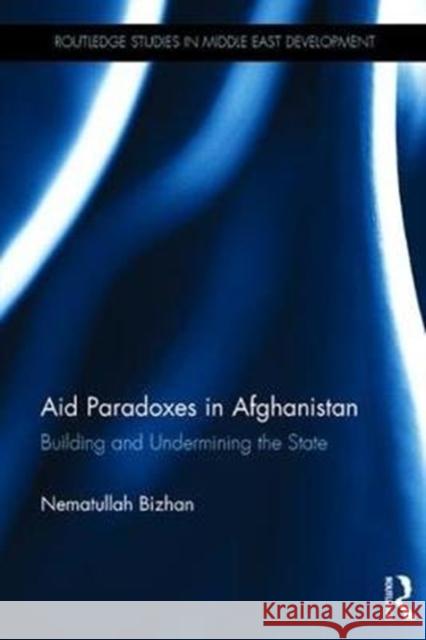Aid Paradoxes in Afghanistan: Building and Undermining the State » książka
Aid Paradoxes in Afghanistan: Building and Undermining the State
ISBN-13: 9781138047617 / Angielski / Twarda / 2017 / 214 str.
Aid Paradoxes in Afghanistan: Building and Undermining the State
ISBN-13: 9781138047617 / Angielski / Twarda / 2017 / 214 str.
(netto: 718,58 VAT: 5%)
Najniższa cena z 30 dni: 654,86
ok. 16-18 dni roboczych.
Darmowa dostawa!
Foreign aid plays a crucial role in the process of building fragile states, so it is vital to understand its effects. Afghanistan provides a prime case study. Following the removal of the Taliban regime by the US-led military intervention in late 2001, it has received unprecedented amounts in aid donations, with the US alone, after adjusting for inflation, appropriating $109 billion to reconstruct the country. This book examines how foreign aid has affected Afghanistan's weak state since the US intervention in late 2001 until the end of President Karzai's first term in 2009. It argues that the relationship between aid and state building is highly complex and that the effects of aid on weak states depends on donors' interests, aid modality and the recipient's pre-existing institutional and socio-political conditions. In the case of Afghanistan, the book claims that it inherited conditions that were not favourable for effective state building. Although some of the problems that emerged in the post-2001 state building process were predictable, the types of intervention that occurred--including the aid architecture which largely bypassed the state, the subordination of state building to the war on terror, and donors and domestic policy choices--decreased the effectiveness of the use of aid and thus contributed to maintaining a weak state. The book also explores how aid dependency and aid distribution outside the government budget affected the interactions between the state and society. Unprecedented attempts of state building and the massive flow of aid in post-9/11 Afghanistan makes an in-depth study of this country crucial for understanding the effects of aid on building fragile states. This book will therefore be invaluable for development practitioners and anyone studying political economics, public policy, international development and the politics of foreign aid.











